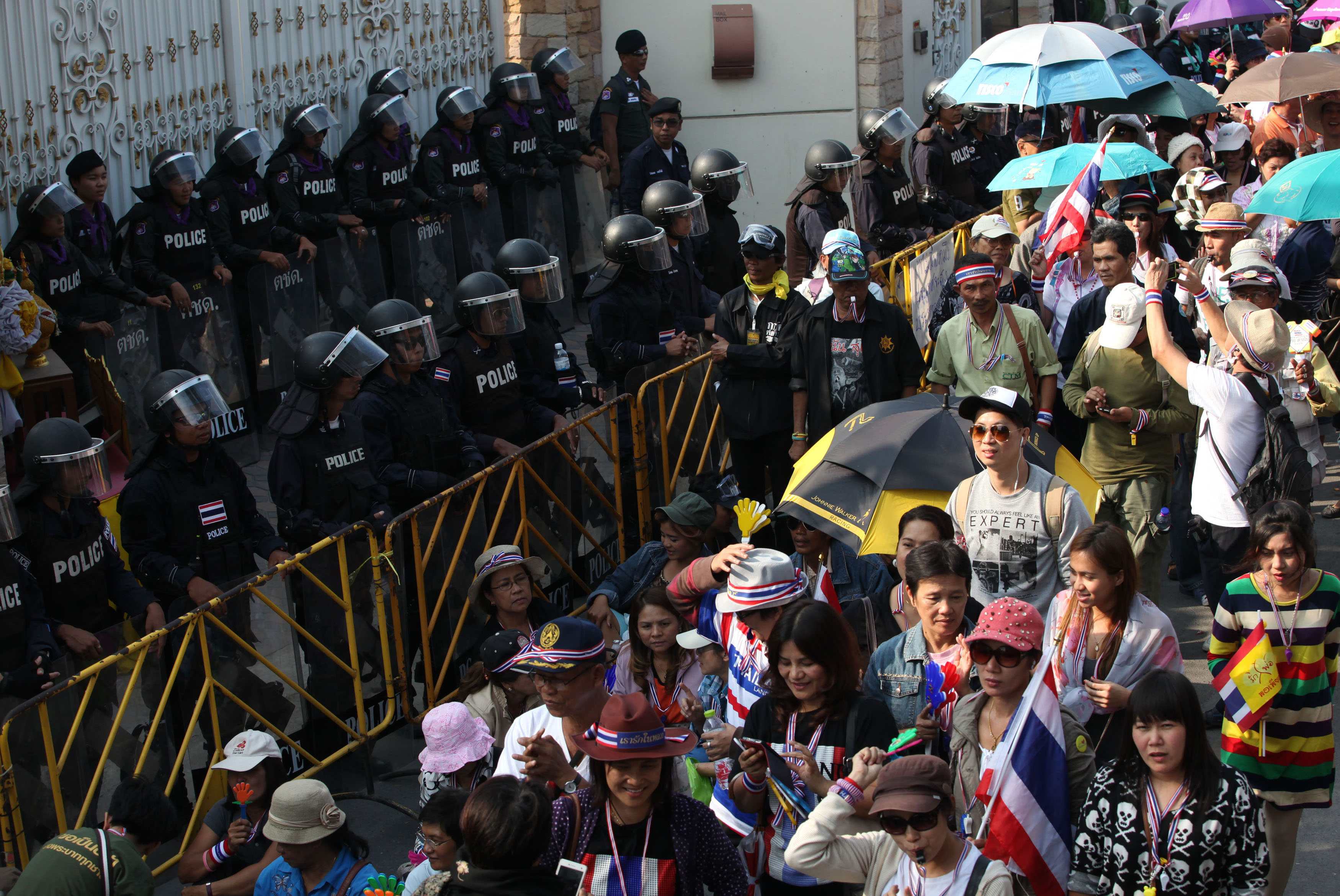BANGKOK – The Thai government said on Friday it will ask the military to help protect candidates and voters in a February election after clashes between police and anti-government protesters in which two people were killed and scores wounded.
The call for help from the powerful but heavily politicised military demonstrates Prime Minister Yingluck Shinawatra's determination to ensure the election goes ahead. The vote is almost certain to return her Puea Thai Party to power.
Any delay to the polls could leave her embattled government and party exposed to an escalation of street protests and legal challenges that could leave the country in limbo.
Her government on Thursday rebuffed a request by the Election Commission to delay the Feb. 2 vote until there was "mutual consent" from all sides - an increasingly unlikely outcome after Thursday's deadly clashes at an election registration venue.
Ranged against each other are Yingluck and her supporters among the rural poor in the populous north and northeast and protesters from Bangkok's middle class and elite who see her as a puppet of her brother, former premier Thaksin Shinawatra.
Thaksin, a former telecoms billionaire who lives in self-imposed exile, is a hero for millions of poor voters who have handed his parties victory in every election since 2001.
His opponents accuse him of manipulating a fragile democracy by effectively buying the support of voters with populist policies such as cheap healthcare, easy credit and subsidies for rice farmers.
Deputy Prime Minister Surapong Tovichakchaikul on Friday said he would ask military chiefs for help securing candidate registrations on Saturday.
"We will also discuss together how to take care of safety for the people who will come to vote on February 2," Surapong said in a televised announcement.
The military has remained neutral in the latest turmoil, apart from offering to act as a mediator, even though protest leader Suthep Thaugsuban, a fiery former deputy premier, has sought to drag the military into the conflict, onto the anti-government side.
The military has staged or attempted 18 coups over the past 80 years - including the ousting of Thaksin in 2006 - and it is again likely to play a crucial role in the latest round of a crisis that has dragged on for eight years.
Economic cost
Surapong also reiterated that the government had no intention of delaying the vote despite the Election Commission's request.
The protesters have vowed to disrupt the ballot and are demanding Yingluck step down so that an appointed "people's council" can introduce reforms before any vote takes place.
More broadly, their aim is to neutralise the power of the billionaire Shinawatra family. Muddying the waters further, the main opposition Democratic Party says it will boycott the vote.
Yingluck, who has spent most of the past week outside Bangkok shoring up support in the north, has tried to avoid confrontation, fearing her opponents would stir chaos deliberately to trigger an intervention, either by the military or the judiciary.
The weeks of protests had been largely peaceful, even though as many as 200,000 people have been on the streets. A hardcore of about 500 protesters, some carrying knives and slingshots, were behind Thursday's violence.
On Friday, the Public Health Ministry said one protester had died from injuries suffered the previous say. A policeman was killed by an unidentified gunman on Thursday. The ministry said 153 people were wounded, 39 of them police.
The crisis is starting to drag on the economy. The Thai baht plumbed close to four-year lows this week and Thai stocks fell two percent after Thursday's violence.
The Finance Ministry cut its growth forecast for 2013 on Thursday, due in part to the political unrest, and 2014 forecasts are also in jeopardy.
The first two years of Yingluck's government had been relatively smooth until her party miscalculated in November and tried to push through an amnesty bill. The bill would have allowed Thaksin to return a free man and the miscalculation sparked the latest round of protests.
Thaksin fled into exile in 2008 shortly before he was sentenced to jail on graft charges he says were politically motivated.





















































